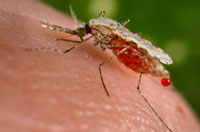
Top stories






More news















1. Pack your medical scheme membership card.
2. Make sure you find out where the closest Designated Service Provider (DSP) for hospitals and doctors is before you leave. Be sure to save the relevant doctors numbers on your cellphone.
3. Make sure you have your emergency service stickers on your vehicle.
4. Carry these important numbers along just in case you need to contact your medical scheme or get authorisation for a procedure:
a. Medical Scheme contact number
b. Contact number for your doctor
c. Emergency services number
5. Carry chronic medication to last the entire period that you will be away and ensure that these are clearly labelled and kept out of reach of children.
6. Sunscreen is a must. With sun exposure at its highest in summer, take extra care of your skin.
7. Pack a basic first aid kit. It should include gloves, scissors, bandages, gauze and safety pins. Remember headache medication as well as something for allergies and insect bites, your pharmacist can assist you with these. Remember Malaria areas! Consult your GP regarding prophylactic treatment. When on the beach remember blue bottles and some jellyfishes may cause intense pain if touched and even may result in allergic reactions. For a full list of what you need to have in the kit, visit National First Aid Academy website www.nfaa.co.za.
8. Make sure you know where the closest Centre for Disease Control is based. The website has a detailed map of where your closest centre is www.cdc.gov.
9. Remember the basics such as keeping well hydrated, washing your hands regularly and eating from food outlets where food is hygienically prepared.
Always double-check whether your holiday destination is a malaria area and take the necessary precautions. Malaria areas are expanding, due to inadequate control in endemic areas that are creating ever-larger environments in which malaria mosquitoes can breed freely. Higher temperatures and higher rainfall are some aspects of climate change that may affect the rate of vector-borne diseases such as malaria.
In addition, increased temperatures lead to lengthened seasons of transmission, which makes contraction of malaria possible for longer periods, leading to higher rates of infection. Precautionary measures include:
• Taking the recommended medication (talk to your doctor)
• Including a good insect repellent in your first aid kit
• Mozzie nets
• Wearing longer pants and tops at night
Finding yourself unprepared for a medical event can ruin your holiday. Make sure that you are prepared for any eventuality so that you can get the most out of your long awaited time off.